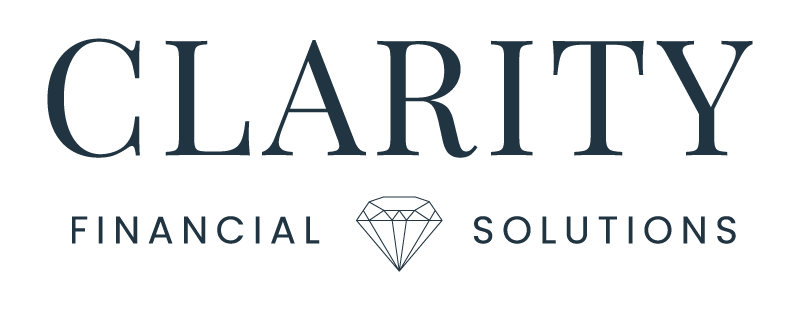As the year draws to a close – and holiday spending reaches its peak – it’s an opportune time to focus on year-end tax planning strategies that can help you minimize your tax burden and optimize your financial situation. Taxes can feel complex, and many people avoid thinking about them, but proper tax planning can significantly impact your financial health by ensuring that you’re taking advantage of available tax-saving opportunities. In this article, we will discuss several effective strategies to consider as you approach the year-end tax planning season.
1. Review Your Tax Situation
Begin your year-end tax planning by evaluating your current financial position and anticipated tax liability for the year. This involves understanding your taxable income, deductions, and potential tax credits. This assessment provides a basis for implementing targeted tax-saving measures that make sense for your personal financial circumstances.
2. Maximize Retirement Contributions
If you haven’t done so already, contribute the maximum allowable amount to your retirement accounts, such as a 401(k), IRA, or SEP IRA. This is a smart year-end tax planning move because these contributions can potentially reduce your taxable income, allowing you to save for retirement while minimizing your tax liability.
3. Harvest Tax Losses
Review your investment portfolio and consider selling off investments that have experienced losses. Capital losses can offset capital gains, reducing your overall tax liability. Be mindful of the IRS’s wash-sale rule, which prohibits buying the same or a substantially identical investment within 30 days of selling it for a loss. If you feel you’d like professional guidance with this portion of your year-end tax planning, a financial advisor can help.
4. Leverage Health Savings Accounts (HSAs) and Flexible Spending Accounts (FSAs)
So many people have access to HSA and FSA accounts but aren’t using them to their full potential. Maximize contributions to your HSA or FSA before the end of the calendar year to reduce your taxable income. Contributions to these accounts are made on a pre-tax basis and can be used for qualified medical expenses, providing tax savings into the future, too.
5. Charitable Contributions
If giving back is meaningful to you, your year-end tax planning can include philanthropic gifts. Donate to eligible charitable organizations to benefit from potential tax deductions, being sure to keep accurate records of your contributions and gift receipts from the organizations. Additionally, you might consider donating appreciated assets to maximize tax benefits.
6. Utilize Tax-Efficient Investments
The end of the year is a good time to review your investment portfolio, so use this time to explore tax-efficient investment strategies. This might include investing in tax-free municipal bonds or tax-managed funds. These investments can help minimize taxable gains and enhance after-tax returns, too. As with any investment strategy, do your due diligence to be sure it’s the right move for you, and work with a financial advisor if you’re unsure.
7. Accelerate or Defer Income
Depending on your tax situation, consider accelerating or deferring income as part of your year-end tax planning strategy. For instance, if you expect to be in a higher tax bracket next year, deferring a bonus or income until the following year could result in tax savings.
8. Explore Tax Credits
Research and identify tax credits you may be eligible for, such as the Child Tax Credit, Earned Income Tax Credit, or education-related credits. These credits can directly reduce your tax liability, so it pays – quite literally – to exhaust all your options when it comes to credits.
9. Utilize the Annual Gift Tax Exclusion
If you really want to make the most of your year-end tax planning and you have the discretionary income to do it, you might consider leveraging the annual gift tax exclusion to transfer assets to family members or loved ones. This allows you to reduce your estate while taking advantage of the gift tax exclusion, which is $17,000 per recipient for 2023.
10. Consult a Tax Professional
If any of the steps above feel overwhelming, know that you don’t have to DIY your tax strategy! Engage a tax advisor or financial advisor to guide you through year-end tax planning that suits your personal needs and goals. Their expertise can help identify additional tax-saving opportunities specific to your financial situation, optimizing your year-end finances and providing greater peace of mind, too.
Practice Year-End Tax Planning to Start the New Year on a Stronger Financial Foundation
We all know what Benjamin Franklin said about “death and taxes,” but that doesn’t mean you should settle for shouldering a higher tax burden than is necessary. Year-end tax planning is a proactive approach to managing your tax liability and optimizing your financial position, often resulting in a lower tax burden. By carefully evaluating your tax situation, leveraging available tax-saving strategies, and seeking professional guidance, you can potentially reduce your tax burden and enhance your overall financial well-being.
At Clarity Financial Solutions, we regularly assist our clients with tax-efficient financial planning. If you’d like to learn more about our services or have a personal conversation about your year-end financial planning strategies, please reach out today to schedule a complementary consultation. Start early, stay informed, and make savvy decisions to achieve a tax-efficient financial plan. Here’s to a financially optimized year’s end!






